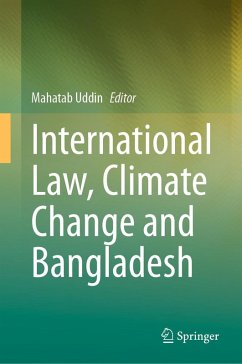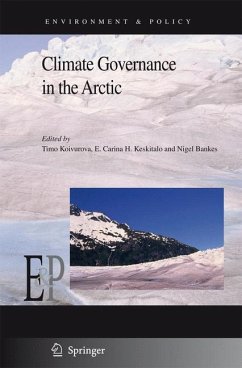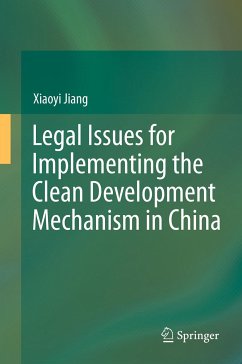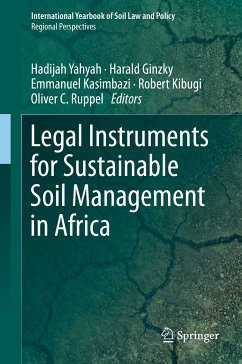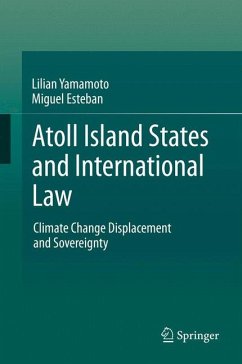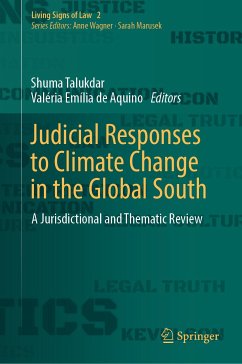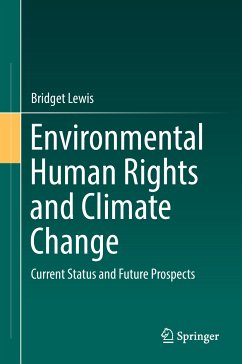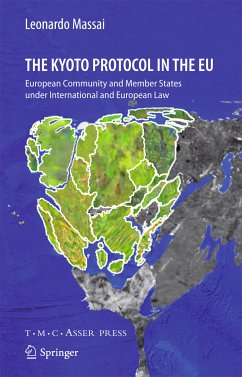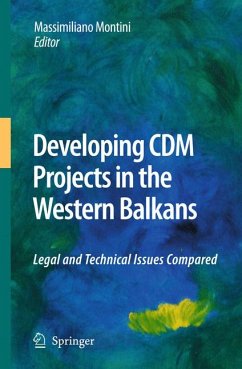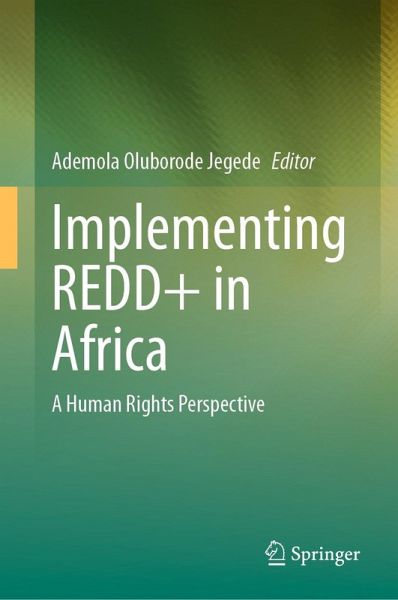
Implementing REDD+ in Africa (eBook, PDF)
A Human Rights Perspective
Redaktion: Jegede, Ademola Oluborode
Versandkostenfrei!
Sofort per Download lieferbar
128,95 €
inkl. MwSt.
Weitere Ausgaben:

PAYBACK Punkte
64 °P sammeln!
This book presents a cohesive collection of contributions representing an African scholarly voice on some of the most burning and emerging topics and experiences regarding the implementation of REDD+ in Africa from a human rights perspective. It addresses the international human rights obligations of states and non-state actors in the context of REDD+ implementation in Africa; how current practices in various African states reinforce or affect human rights standards; and critical issues concerning the rights of vulnerable groups such as women, Indigenous populations, and forest dwellers in the...
This book presents a cohesive collection of contributions representing an African scholarly voice on some of the most burning and emerging topics and experiences regarding the implementation of REDD+ in Africa from a human rights perspective. It addresses the international human rights obligations of states and non-state actors in the context of REDD+ implementation in Africa; how current practices in various African states reinforce or affect human rights standards; and critical issues concerning the rights of vulnerable groups such as women, Indigenous populations, and forest dwellers in the implementation of REDD+ in Africa. Further, it investigates potential gaps in the existing laws, and how they can be addressed from a comparative point of view. The book also sheds light on the roles that different actors can play in fostering change and identifies best practices in the implementation of REDD+ in Africa.
The book offers a rich intellectual resource for various actors in the environmental science, climate and environmental law fields who are often confronted with the challenge of how to manage the delicate balance of forests as a development resource; forests as a climate-change mitigation resource; and forests as a catalyst for the rights of vulnerable populations. The book responds to the imbalance and gaps in REDD+ scholarship. Addressing such lacuna in an edited volume of this nature is essential to the present and future work of practitioners, academics and other actors with a sustained interest in REDD+ in Africa.
Dieser Download kann aus rechtlichen Gründen nur mit Rechnungsadresse in A, B, BG, CY, CZ, D, DK, EW, E, FIN, F, GR, HR, H, IRL, I, LT, L, LR, M, NL, PL, P, R, S, SLO, SK ausgeliefert werden.



